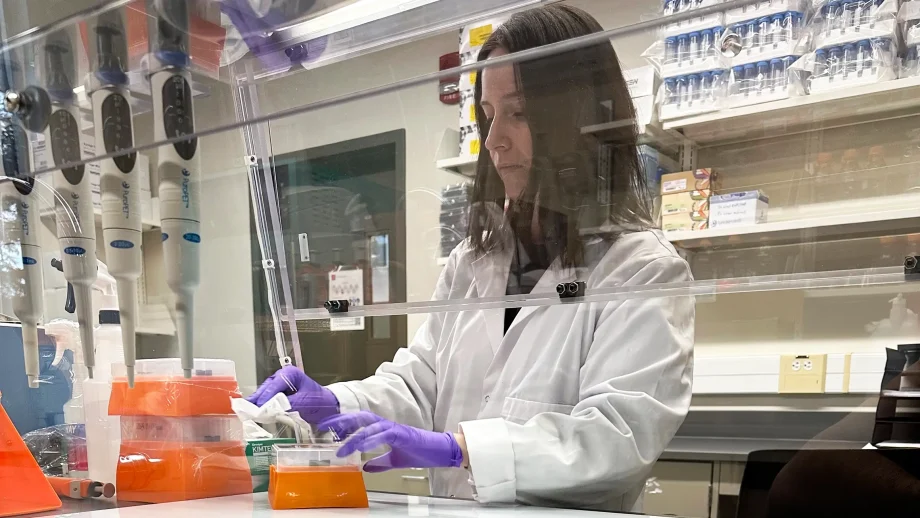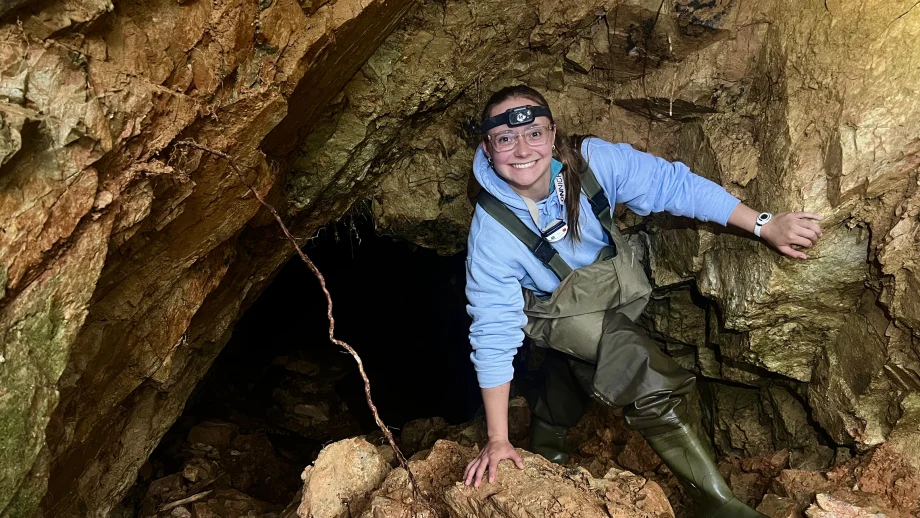Shining star and Métis computer science student Sidney Leggett is in her final year of studies at The University of Winnipeg.
This accomplished student serves as a junior epidemiologist with the Government of Manitoba. This past summer, her work and research resulted in the Automation of the COVID-19 Unintended Outcomes Report that was sponsored by the Government of Manitoba, Epidemiology and Surveillance Unit, and was completed as part of her applied computer science health informatics practicum, supervised by James Deng.
While public health measures to contain the virus are critical and necessary, policy and decision makers must also be aware of the impacts of COVID-19. This specific COVID-19 reporting focuses on the unintentional outcomes that have occurred throughout the pandemic. This information is in high demand for public health decision making to ameliorate public health measures for people in Manitoba and specific groups within the population.
In creating this report, Leggett improved the process to reduce human error and made the overall process less complex to reproduce regular useful reports.
“There was a need to automate the data cleaning, analysis, formatting, and much of the report writing,” explained Leggett. “With a quick-produced report, there can be more interpretations and the data can be better understood to help improve decision making.”
During her time as an applied computer science student, Leggett has developed a passion for health informatics, data analysis, and public health.
“I have worked with the Epidemiology and Surveillance Unit for the past three years, so it was a great fit to also do my practicum with them,” said Leggett.
The unit’s role in the provincial government is to support the public health system. It does this by monitoring, analyzing, and reporting on several aspects of communicable and non-communicable diseases, such as occurrence, spread, and the severity.
“When I read Sidney’s proposal, I was very glad to see her project is part of the effort to battle the pandemic,” said Deng. “We always try to make the applied computer science curriculum closely related to the IT industry and society, and I couldn’t think of any other better example than Sidney’s project. I am also very proud that Sidney’s project is a great success, as commented by Dr. Carla Loeppky, the Director and Lead Epidemiologist of Epidemiology and Surveillance Unit.”
This past spring, Leggett also served as a Pathways to Graduate Studies (P2GS) instructor. She is an accomplished Natural Sciences and Engineering Research Council of Canada Undergraduate Student Research Award recipient and is also involved with .caISES, a campus group that supports Indigenous students in science, technology, engineering, and mathematics.





